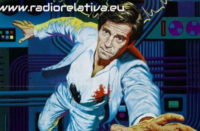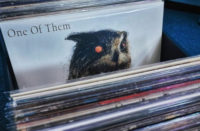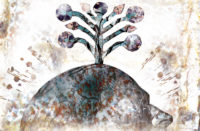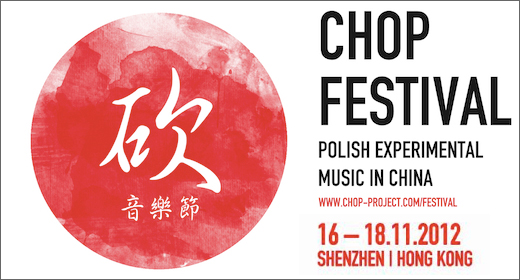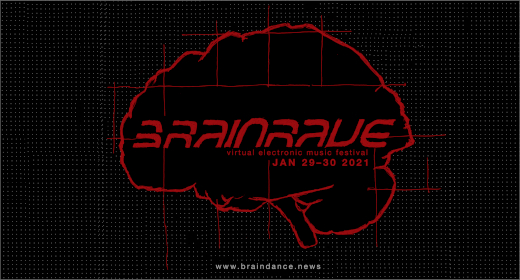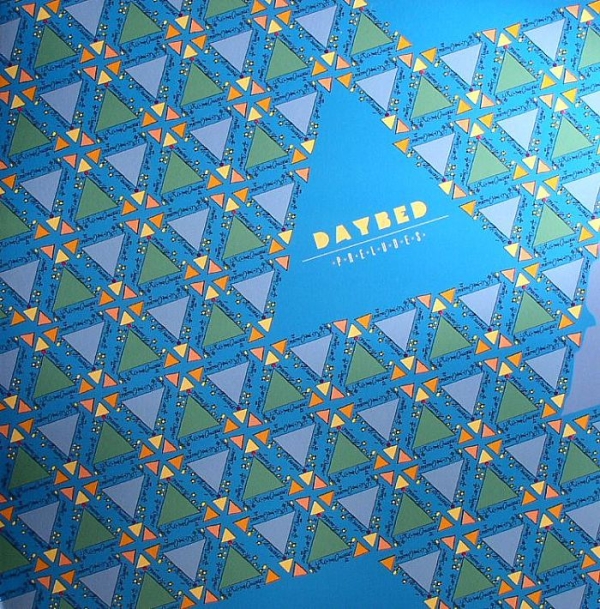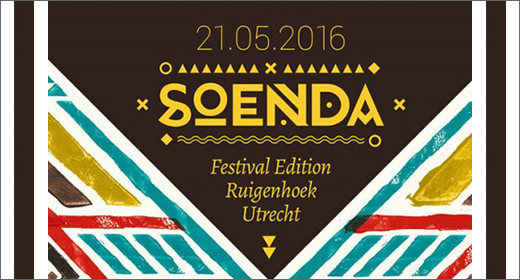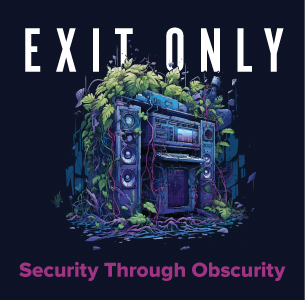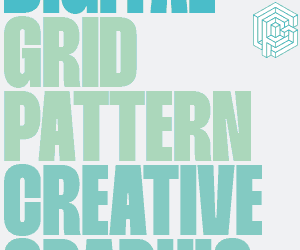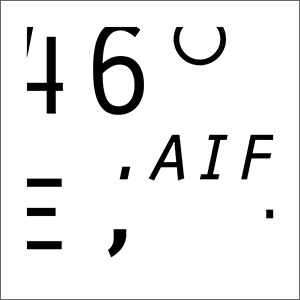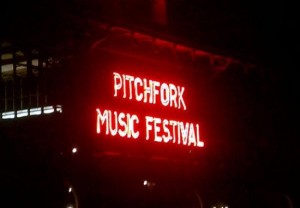 (October 2011) For the past 15 years, Pitchfork has managed to evolve from a hipster blog, to something of a cultural taste-maker for those who long to be in the know about new and emerging music from a broad spectrum of genres. Their annual music festival in Chicago highlights some of the best emerging talent from the indie, electronic and sometimes hipster metal scenes, as well as from artists who defy category, and exposes them to a larger audience. This mission continues as Pitchfork expands their footprint globally with the Pitchfork Music Festival Paris. Having already been planning a trip to Paris, it was serendipitous that the dates of the festival coincided with dates of my trip. The prospect of being able to see Aphex Twin would have been enough to book my trip to overlap with the festival, but with a solid line-up of electronic acts on the bill, it became a must-go on my Parisian itinerary.
(October 2011) For the past 15 years, Pitchfork has managed to evolve from a hipster blog, to something of a cultural taste-maker for those who long to be in the know about new and emerging music from a broad spectrum of genres. Their annual music festival in Chicago highlights some of the best emerging talent from the indie, electronic and sometimes hipster metal scenes, as well as from artists who defy category, and exposes them to a larger audience. This mission continues as Pitchfork expands their footprint globally with the Pitchfork Music Festival Paris. Having already been planning a trip to Paris, it was serendipitous that the dates of the festival coincided with dates of my trip. The prospect of being able to see Aphex Twin would have been enough to book my trip to overlap with the festival, but with a solid line-up of electronic acts on the bill, it became a must-go on my Parisian itinerary.
The following is my account of selected live electronic music performances from the event.
Washed Out ::
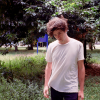 As the band that could be called the poster children for so-called chillwave, Washed Out brings a unique hybrid live-band cum electronic music performance that plays well next to bands, as well as DJ’s and laptop-based performances. The band has a small, but very well-written, set of material which includes the song “Feel it all around” which is the theme to the IFC series “Portlandia.”
As the band that could be called the poster children for so-called chillwave, Washed Out brings a unique hybrid live-band cum electronic music performance that plays well next to bands, as well as DJ’s and laptop-based performances. The band has a small, but very well-written, set of material which includes the song “Feel it all around” which is the theme to the IFC series “Portlandia.”
The band’s set was a ambient, space-rock affair. The charismatic lead-singer (Ernest Greene) was engaging, interacting with the audience and keeping the energy up of what could have easily turned into something more of a chill room environment. Their performance was consistent, with the band working through their set with the all of the dynamism of a 1980’s Depeche Mode. The bands ability to translate their amazing studio record to a solid live perform, speaks to their talent and their ability to write songs.
Mondkopf ::
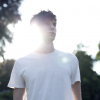 On the surface Mondkopf come off as something between ambient experimentation and dark industrial, but if you sit with his music you’ll notice that there is an emotional depth that somehow out-paces the template of the medium in which he creates. The video collaboration with multimedia agency Trafik gave his performance a hyperreal sense of place. For someone as young as he is, to have such complexity of emotion in his music, and to have such a grand sense of how it should be executed, is rare. As Mondkopf begins to develop a sonic vocabulary that transcends his influences, it will be interesting to see where he takes his music and art.
On the surface Mondkopf come off as something between ambient experimentation and dark industrial, but if you sit with his music you’ll notice that there is an emotional depth that somehow out-paces the template of the medium in which he creates. The video collaboration with multimedia agency Trafik gave his performance a hyperreal sense of place. For someone as young as he is, to have such complexity of emotion in his music, and to have such a grand sense of how it should be executed, is rare. As Mondkopf begins to develop a sonic vocabulary that transcends his influences, it will be interesting to see where he takes his music and art.
Aphex Twin ::
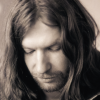 Richard D. James’ influence on modern electronic music is nothing of a mystery. His work since the early 1990’s helped define the IDM strain of electronic music, and as a counterpoint to the genre (or some might say it’s just a mailing list) even invented his own term braindance to describe his music. A prankster, an experimenter and generally an artist difficult to pin-down, Aphex Twin has managed to seamlessly stitch together a catalog that is as much at home in the sound-art pantheon with Karl Stockhausen, as it is in the acid-soaked back catalog of other aging ravers. His performance at the Pitchfork Festival definitely fell in the later category.
Richard D. James’ influence on modern electronic music is nothing of a mystery. His work since the early 1990’s helped define the IDM strain of electronic music, and as a counterpoint to the genre (or some might say it’s just a mailing list) even invented his own term braindance to describe his music. A prankster, an experimenter and generally an artist difficult to pin-down, Aphex Twin has managed to seamlessly stitch together a catalog that is as much at home in the sound-art pantheon with Karl Stockhausen, as it is in the acid-soaked back catalog of other aging ravers. His performance at the Pitchfork Festival definitely fell in the later category.
His set-up was sparse, simply a laptop and a midi controller, but the the visual set-up that was a part of his live set-up was epic to say the least. Three large video screens, and three smaller ones, took up the space around the stage where he was performing, an an onslaught of swirling video images that alternated between familiar Aphex Twin icons (his logo, the twisted faces from his videos, etc.), to scenes of the crowd spliced in between bits of digital debris, live stereograms, swirling fractals and random clips that seemed a fitting companion to the frenetic sounds coming from the mind and machine of Richard D. James.
As with most of his more recent live performances, his set started with ambient selections, moving into abstract territory and then into his trademark mix of acid-techno and drum’n bass. While most of his set was mashed into incomprehensible bits of sounds from his classic work, there was no mistaking the trademark Aphex Twin style. It was a classic set and this performance did not disappoint.
Pantha Du Prince ::
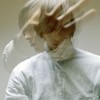 Let me say for the record that Black Noise is one of my favorite records of last year. Pantha Du Prince’s take on techno is wholly unique and truly interesting. As always, and please forgive me for continuing to rehash a decades old debate, it can be difficult to translate an amazing electronic studio record into an excellent live performance. His set immediately followed Richared D. James, and playing right after Aphex Twin is not an enviable slot for anyone, let alone an artist whose much more tempered and sparse arrangements are comparatively tepid. While the music that was performed, sound quality and delivery of his set was solid, it was simply the wrong place in the line-up for this act. Visually, there was simply not too much to appreciate. He relied on the existing lighting rig that the bands did, which was interesting for the live bands but for a laptop musician it simply wasn’t enough.
Let me say for the record that Black Noise is one of my favorite records of last year. Pantha Du Prince’s take on techno is wholly unique and truly interesting. As always, and please forgive me for continuing to rehash a decades old debate, it can be difficult to translate an amazing electronic studio record into an excellent live performance. His set immediately followed Richared D. James, and playing right after Aphex Twin is not an enviable slot for anyone, let alone an artist whose much more tempered and sparse arrangements are comparatively tepid. While the music that was performed, sound quality and delivery of his set was solid, it was simply the wrong place in the line-up for this act. Visually, there was simply not too much to appreciate. He relied on the existing lighting rig that the bands did, which was interesting for the live bands but for a laptop musician it simply wasn’t enough.
For more information about the Pitchfork Music Festival, visit their website here.
Article written by guest contributor Stephen Ruiz.






